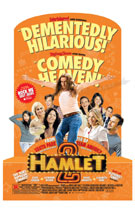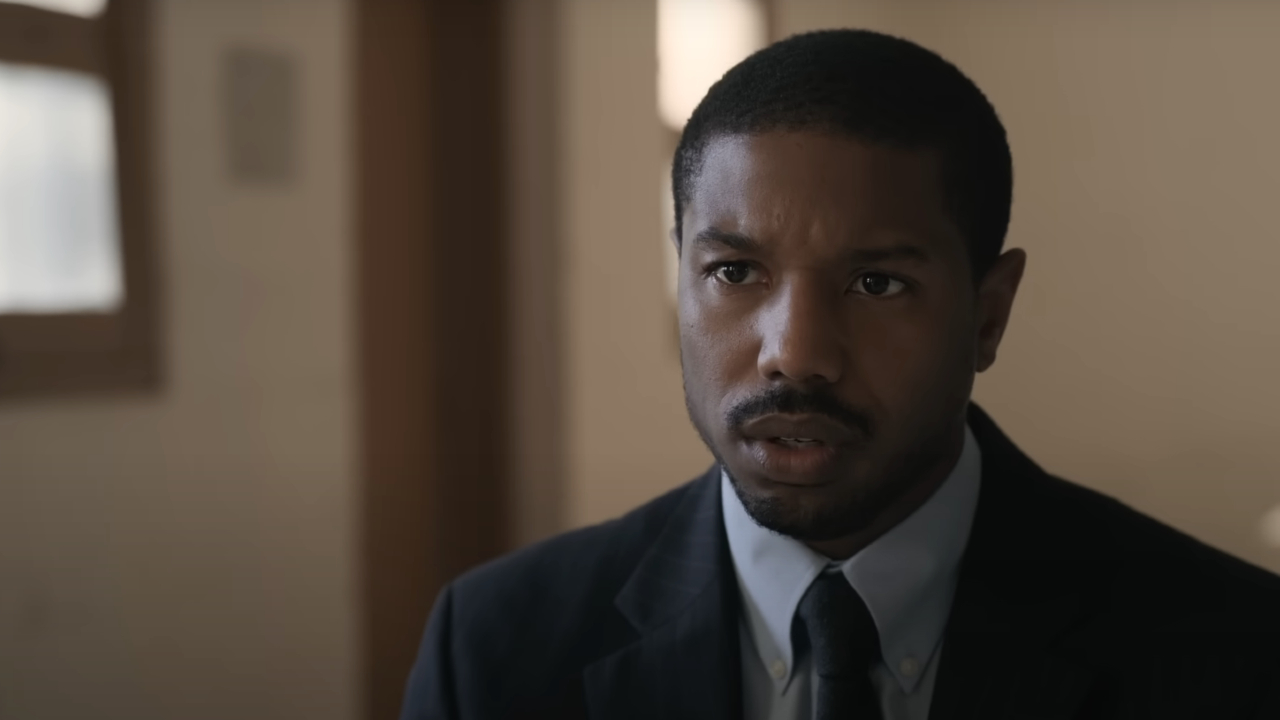Hamlet 2 has the kind of generic, boilerplate premise that the most brilliant comedies can come from. Depressed, failed actor Dana Marschz (Steve Coogan) has become a depressed, failed drama teacher in the town of Tuscon, Arizona, which nearly all of its residents regard as the place where hope goes to die. His drama department has been reduced to two suck-up students (Skylar Astin and Phoebe Strole) who star in Dana's original productions, which are all stage adaptations of Hollywood movies no one was really clamoring to see adapted. His wife (Catherine Keener) drinks margaritas the size of her head just to get through dinner with him, and his nemesis is a pre-adolescent theater critic who constantly encourages him to try something new.
So when the school board decides to shut down his department just as a flock of “troubled” kids have signed up for drama class, Dana decides now's the time to try his grandest experiment: Hamlet 2, a sequel to Hamlet in which all the main characters get to live thanks to a time machine, and, somehow, Hamlet and Jesus team up and exchange cell phone numbers. He casts as Hamlet Octavio (Joseph Julian Soria), the most talented (and most obnoxious) of the Latino kids who have joined the class, and conscripts the rest of the rowdy kids into his even rowdier production. When the school and its grumpy principal (Marshall Bell) kick Dana and the kids off the premises, the ACLU steps in to protect them, and the production in an abandoned warehouse attracts all kinds of national attention.
Andrew Fleming directs everything with a loose, easy hand, leaving lots of room for Coogan to goof around within the large confines of Dana's character. Coogan never seems to settle on exactly what kind of loser Dana is, veering from a guy who wears a giant caftan to work in order to let his testicles breathe to a wimpy nothing who can't even speak up when his wife runs off with their boarder (a wonderful and restrained David Arquette). The variations within Dana's character are reflected in the movie itself, which seems to stretch to reach every possible joke, and spreads itself thin in the process. Many of the jokes are inspired, but others are set up with no noticeable payoff.
Particularly funny are the women, including Keener, Amy Poehler as the deliciously named ACLU representative Cricket Feldstein (“I married a Jew!” she tells everyone who doesn't ask) and Elisabeth Shue as herself, having given up Hollywood to pursue a career as a nurse in Tucson. And many of the best gags revolve around the students, from the huffy boy actor, who refuses to play Laertes as gay, to Octavio, the kid Dana assumes to be from the hood but who is actually the child of a scholar and a painter. Most of the kids seemed pulled from real life, while Dana seems to have walked out of a sketch comedy act.
Perhaps the biggest problem is Hamlet 2 itself, which never seems to have a real plot or much relation to the original play. Most movies based around plays use the final performance as a microcosm of what's been going on in the larger story-- Shakespeare in Love being the main example-- but Hamlet 2 the movie largely ignores Hamlet 2 the play, save the very funny musical number “Rock Me Sexy Jesus.” Its unclear whether the screenwriters just didn't have it in them to create an entire musical, or if they would rather use the play as a frame on which to hang as many weird interludes as possible. The performance of “Someone Saved My Life Tonight” by the Tucson Gay Men's Chorus and Jesus' resurrection scene are funny, but an actual story would have been a lot more satisfying.
Had it started with a lazy premise or a less talented leading man, Hamlet 2 would be satisfying for what it is, a shaggy dog story with some great gags and clear talent behind the camera. But because it starts with so much promise and squanders half of it, Hamlet 2 becomes a disappointment for what it should have been. It's sacrilege, I know, to suggest that a Sundance hit would have been better as a strictly Hollywood product, but some talented script doctors and a bigger budget might have helped this well-meaning comedy achieve its real potential.
Your Daily Blend of Entertainment News
Staff Writer at CinemaBlend


